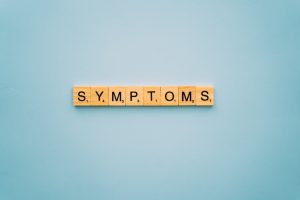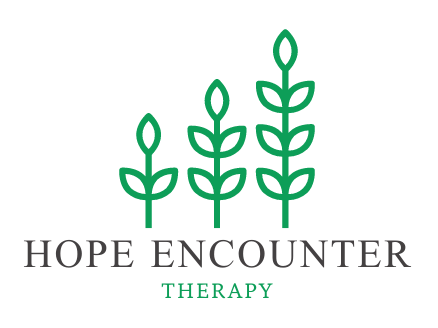Understanding Developmental Trauma:The Impact on Mental Health and Well-being

Developmental trauma refers to adverse experiences that occur during childhood and can have a lasting impact on an individual’s emotional, psychological, and social development. These experiences may include neglect, abuse, witnessing violence, or living in chaotic environments. The consequences of such trauma can manifest in various ways, such as difficulty forming healthy relationships, low self-esteem, and even physical health issues. Understanding the complexities of developmental trauma is crucial not only for mental health professionals but also for individuals seeking to heal and thrive in their lives. Let’s delve deeper into the topic, exploring the long-term effects of developmental trauma and providing insights into the therapeutic interventions and self-care practices that can facilitate recovery and promote well-being.
What is developmental trauma?
Developmental trauma refers to the adverse experiences that occur during childhood and disrupt a child’s normal development. These experiences can include physical, emotional, or sexual abuse, neglect, witnessing violence, or living in unstable and unpredictable environments. Unlike single traumatic events, developmental trauma is chronic and can occur repeatedly over an extended period. The developing brain of a child is highly vulnerable to the impact of these adverse experiences, which can disrupt the formation of healthy neural pathways and affect various aspects of their overall development.
Developmental trauma can have a significant impact on a child’s emotional, cognitive, and social functioning. It can interfere with their ability to regulate emotions, form secure attachments, and develop a positive sense of self. The effects of developmental trauma can be far-reaching and may persist into adulthood if not addressed and treated effectively.
The impact of developmental trauma on mental health
The impact of developmental trauma on mental health is profound and can manifest in a variety of ways. Individuals who have experienced developmental trauma may struggle with anxiety, depression, and other mood disorders. They may also have difficulties with impulse control, emotion regulation, and self-destructive behaviors. The effects of developmental trauma can also extend to cognitive functioning, leading to difficulties with attention, concentration, and memory.
Furthermore, individuals who have experienced developmental trauma may develop maladaptive coping mechanisms such as substance abuse, self-harm, or disordered eating as a way to cope with their emotional pain. These behaviors can further exacerbate mental health issues and hinder the healing process.
Signs and symptoms of developmental trauma
 Recognizing the signs and symptoms of developmental trauma is crucial for early intervention and effective treatment. While the presentation of developmental trauma can vary from person to person, there are common indicators to look out for. These may include:
Recognizing the signs and symptoms of developmental trauma is crucial for early intervention and effective treatment. While the presentation of developmental trauma can vary from person to person, there are common indicators to look out for. These may include:
1. Hyperarousal and hypervigilance: Individuals may constantly be on edge, easily startled, and have difficulty relaxing or sleeping.
2. Avoidance and numbing: People may actively avoid situations or reminders that trigger traumatic memories and may experience emotional numbness or a sense of detachment.
3. Emotional dysregulation: Individuals may struggle with intense and unpredictable emotions, experiencing frequent mood swings, irritability, or emotional outbursts.
4. Impaired self-esteem and self-worth: Developmental trauma can lead to a negative self-concept and feelings of shame, guilt, or worthlessness.
5. Difficulties with relationships: Individuals may find it challenging to establish and maintain healthy relationships, often experiencing difficulties with trust, intimacy, and boundaries.
Understanding the long-term effects of developmental trauma
 The long-term effects of developmental trauma can be far-reaching and impact various aspects of an individual’s life. These effects can include:
The long-term effects of developmental trauma can be far-reaching and impact various aspects of an individual’s life. These effects can include:
1. Physical health issues: Developmental trauma has been linked to a higher risk of developing chronic physical health conditions, such as cardiovascular disease, diabetes, and autoimmune disorders. The ongoing stress response associated with developmental trauma can contribute to inflammation and dysregulation in the body, leading to long-term health consequences.
 2. Impaired brain development: The developing brain is highly susceptible to the effects of developmental trauma. Prolonged exposure to stress and adversity can disrupt the normal development of brain structures and functions, leading to difficulties with emotional regulation, impulse control, and cognitive processing.
2. Impaired brain development: The developing brain is highly susceptible to the effects of developmental trauma. Prolonged exposure to stress and adversity can disrupt the normal development of brain structures and functions, leading to difficulties with emotional regulation, impulse control, and cognitive processing.
3. Social and relational challenges: Individuals who have experienced developmental trauma may struggle with forming and maintaining healthy relationships.  They may have difficulties with trust, boundaries, and intimacy, often leading to a pattern of dysfunctional relationships.
They may have difficulties with trust, boundaries, and intimacy, often leading to a pattern of dysfunctional relationships.
4. Emotional and mental health disorders: Developmental trauma significantly increases the risk of developing mental health disorders, including anxiety, depression, post-traumatic stress disorder (PTSD), and borderline personality disorder (BPD). These disorders can significantly impact an individual’s well-being and quality of life if left untreated.
5. Inter-generational transmission: Developmental trauma can have a lasting impact on future generations. If not addressed, the effects of trauma can be passed down through families, perpetuating a cycle of dysfunction and adversity.
How developmental trauma affects relationships

Developmental trauma can have a profound impact on an individual’s ability to form and maintain healthy relationships. The experience of trauma can create deep-seated fears and mistrust, making it challenging to establish and sustain connections with others. Here are some ways in which developmental trauma can affect relationships:
1. Trust issues: Individuals who have experienced developmental trauma may struggle with trust, as their early experiences may have taught them that people are unreliable or dangerous. This can lead to difficulties in forming close relationships and maintaining trust even with trustworthy individuals.
2. Fear of abandonment: Developmental trauma can create a fear of abandonment, making it challenging to establish secure and lasting connections. The fear of being left or rejected can trigger anxiety and push individuals to distance themselves from others to protect themselves from potential pain.
3. Attachment difficulties: The disruption of healthy attachment bonds during childhood can lead to insecure attachment styles in adulthood. Individuals may exhibit avoidant, anxious, or disorganized attachment patterns, making it difficult to establish and maintain healthy relationships.
4. Emotional dysregulation: Developmental trauma can interfere with emotional regulation, leading to intense emotional reactions that may overwhelm both the individual and their relationships. This can strain relationships and make it challenging for others to understand and support them.
5. Co-dependency and enmeshment: Some individuals who have experienced developmental trauma may develop co-dependent relationships or become enmeshed with others as a way to cope with their unresolved trauma. This can lead to an unhealthy dynamic where boundaries are blurred, and individual identities are compromised.
Healing and recovery from developmental trauma

Healing and recovery from developmental trauma are possible with the right support and interventions. While the journey may be challenging, there are several approaches that can facilitate healing and promote well-being:
1. Trauma-informed therapy: Trauma-informed therapy approaches, such as Eye Movement Desensitization and Reprocessing (EMDR), Cognitive-Behavioral Therapy (CBT), and Dialectical Behavior Therapy (DBT), can help individuals process and integrate their traumatic experiences. These therapies aim to reduce symptoms, develop healthy coping strategies, and foster resilience.
2. Attachment-based interventions: Given the impact of developmental trauma on attachment, interventions that focus on repairing and strengthening attachment bonds can be effective. Therapies such as Emotionally Focused Therapy (EFT) and Attachment-Focused Family Therapy (AFFT) can help individuals develop secure attachment styles and improve their relationships.
3. Mindfulness and self-regulation practices: Mindfulness-based practices, such as meditation and yoga, can help individuals develop self-awareness, regulate their emotions, and cultivate a sense of calm. These practices can be beneficial in managing stress, anxiety, and other symptoms related to developmental trauma.
4. Body-based therapies: Developmental trauma is stored in the body, and somatic therapies like Somatic Experiencing (SE) and Sensorimotor Psychotherapy can help individuals release stored trauma and restore a sense of safety and well-being.
5. Supportive relationships: Building a strong support network is crucial for healing from developmental trauma. Connecting with understanding and empathetic individuals, whether through support groups, friendships, or mentoring relationships, can provide validation, encouragement, and a sense of belonging.
Therapeutic approaches for treating developmental trauma
Therapeutic approaches for treating developmental trauma aim to address the underlying effects of trauma and promote healing. Here are some commonly used approaches:
1. Eye Movement Desensitization and Reprocessing (EMDR): EMDR is a psychotherapy approach that helps individuals process traumatic memories and reframe negative beliefs associated with the trauma. It involves using bilateral stimulation, such as eye movements or tapping, to facilitate the integration of traumatic experiences and foster healing.
2. Cognitive-Behavioral Therapy (CBT): CBT focuses on identifying and challenging negative thoughts and beliefs that contribute to trauma-related symptoms. It helps individuals develop healthier coping mechanisms and strategies for managing distressing emotions.
3. Dialectical Behavior Therapy (DBT): DBT combines elements of CBT with mindfulness practices to help individuals regulate emotions, manage self-destructive behaviors, and improve interpersonal skills. It is particularly effective for individuals with a history of trauma and difficulties with emotional regulation.
4. Trauma-Focused Cognitive-Behavioral Therapy (TF-CBT): TF-CBT is specifically designed for children and adolescents who have experienced trauma. It incorporates elements of CBT, play therapy, and family therapy to address trauma-related symptoms and promote healing within the family system.
5. Narrative Exposure Therapy (NET): NET is a short-term therapy that focuses on helping individuals tell their trauma narrative in a safe and supportive environment. By revisiting and reprocessing traumatic memories, individuals can gain a sense of mastery and control over their experiences.
Self-care strategies for individuals affected by developmental trauma
Self-care plays a vital role in the recovery and well-being of individuals affected by developmental trauma. Here are some self-care strategies that can support healing:
1. Prioritize physical well-being: Engaging in regular exercise, eating nutritious meals, and getting enough sleep can help restore physical health and provide a foundation for overall well-being.
2. Practice mindfulness and relaxation techniques: Engaging in mindfulness meditation, deep breathing exercises, or other relaxation techniques can help calm the mind and reduce stress.
3. Engage in creative outlets: Exploring creative outlets such as art, writing, or music can provide a healthy and expressive way to process emotions and release tension.
4. Establish supportive routines: Creating daily routines that promote self-care, such as setting aside time for hobbies, relaxation, or self-reflection, can help individuals establish a sense of stability and control.
5. Seek social support: Connecting with understanding and supportive individuals, whether through therapy, support groups, or trusted friends and family, can provide validation, encouragement, and a sense of belonging.
6. Set boundaries: Learning to set and enforce healthy boundaries is essential for individuals affected by developmental trauma. This involves recognizing personal limits, communicating needs, and prioritizing self-care.
7. Engage in activities that bring joy: Engaging in activities that bring joy and a sense of purpose can help individuals rebuild a positive sense of self and regain a sense of pleasure and fulfillment in life.
8. Practice self-compassion: Being kind and compassionate towards oneself is crucial in the healing process. Acknowledging the impact of developmental trauma and treating oneself with understanding and gentleness can support emotional healing and resilience.
Supporting someone with developmental trauma
Supporting someone with developmental trauma requires empathy, patience, and understanding. Here are some guidelines for providing support:
1. Educate yourself: Take the time to learn about developmental trauma and its effects to gain a deeper understanding of what the individual may be experiencing.
2. Listen without judgment: Create a safe and non-judgmental space for the individual to share their experiences and feelings. Validate their emotions and let them know that you are there to support them.
3. Respect boundaries: Individuals affected by developmental trauma may have difficulty with boundaries. Respect their need for personal space and allow them to set the pace for sharing and connecting.
4. Offer support and encouragement: Let the individual know that you believe in their ability to heal and recover. Offer encouragement and support as they navigate their healing journey.
5. Be patient and understanding: Healing from developmental trauma takes time. Be patient with the individual and understand that their progress may not always be linear.
6. Encourage professional help: Encourage the individual to seek professional help from a qualified therapist who specializes in trauma if they have not already done so. Therapeutic support is essential for healing and recovery.
7. Practice self-care: Supporting someone with developmental trauma can be emotionally demanding. Take care of your own well-being and seek support for yourself when needed.
Conclusion and resources for further support
Understanding the impact of developmental trauma on mental health and well-being is crucial for individuals, professionals, and society as a whole. By recognizing the signs, symptoms, and long-term effects of developmental trauma, we can provide the necessary support and interventions to promote healing and resilience. Remember that healing is possible, and with the right resources and support, individuals affected by developmental trauma can reclaim their lives and build a brighter future.
If you or someone you know is struggling with developmental trauma, it is important to seek professional help. The following resources can provide further information and support:
–Hope Encounter Therapy. Our therapists are dedicated to excelling as trauma therapists with trauma specific training and focus.
– National Child Traumatic Stress Network (NCTSN): www.nctsn.org
– Substance Abuse and Mental Health Services Administration (SAMHSA): www.samhsa.gov
– International Society for the Study of Trauma and Dissociation (ISSTD): www.isst-d.org
– Sidran Institute: www.sidran.org
– American Psychological Association (APA): www.apa.org



